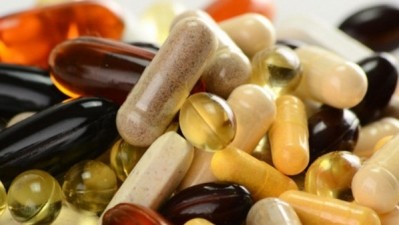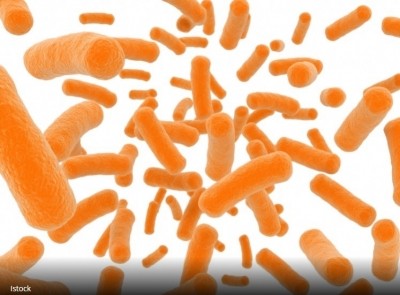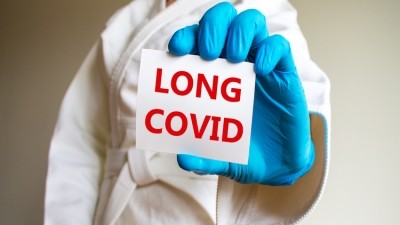Can psychobiotics soothe a simmering post-happy world?

Psychobiotics referencing anxiety, stress, mood, sleep, cognitive function, migraine and even diseases like depression, Alzheimer’s and Parkinson’s have seen online reviews jump 400% from 76,000 to 314,000 between June 2020 and June 2021.
While only representing 5% of total probiotic supplements in e-commerce channels in 25 countries Lumina tracks, major probiotic suppliers, supplement and FMCG brands like IFF Health/DuPont, Probiotical, AB-Biotics, New Chapter, Nestlé, Unilever and DSM are lending weight to a nascent GBX category.
Pharma titans like Bayer Healthcare are also investing in research and NPD initiatives that may see the imminent medicalisation of certain psychobiotic indications like neurological degeneration.
International Probiotics Association (IPA) executive director, George Paraskevakos, told Lumina interest in the GBX category was being driven by a rapidly evolving research effort into psychobiotics.
“We have been conducting an analysis of all the human clinical trials in probiotics that are out there, and outside immune and gastrointestinal, GBX had the next most clinicals happening,” the IPA Chief said.
The business-facing, 100-slide, psychobiotic investigation from William Reed’s market intelligence division features exclusive interviews with probiotic leaders including IFF Health/DuPont, DSM/Culturelle, Lallemand, Winclove, Probiotical, Atlantia, Kaneka/AB-Biotics and others.
These insights are coupled with a unique 25-nation e-commerce data set that forensically details 215 psychobiotic products to reveal:
- probiotic strains, suppliers and colony forming unit (CFU) count
- other fortifying nutrients including prebiotics, vitamins, minerals and botanicals
- health claims made on-pack and online
- pricing
- preferred e-tailer channels
- regional differences in blends, pricing and claims
- e-tailer and bespoke e-commerce product removals
- product counts in 25 countries on five continents
‘Tremendous commercial potential’…
About 20 mini-case studies of the most compelling psychobiotics offer further context along with accessible breakdowns of the research status quo including the potentially game-changing pursuit of psychobiotic mechanisms of action that crosses over into broader microbiome enquiry.
A regulation review includes the few countries permitting GBX health claims and which strategies firms are adopting to communicate GBX concepts to consumers in the absence of authorised psychobiotic claims.
“The GBX platform has tremendous commercial potential, far out-rivalling ‘immunity’ or ‘gut health’ as targets as it may impact many aspects of human physiology (mood, cognition, stress) and diseases/conditions such as irritable bowel syndrome, autism, anxiety, depression, and Parkinson’s disease,” said regulatory expert, nutritionist and visiting Professor to Ulster University, Colette Shortt.
“Thus, commercially it is likely to be both a strong consumer health and pharma play.”
Probiotic hope in a ‘post-happy’ world?
William Reed/Lumina Intelligence Director of Insights and co-author of the report, Ewa Hudson, said it highlighted the world’s spiralling mental health problem – and mounting desire to find natural therapies in what some psychological experts are calling a ‘post-happy’ world.
“There are more than 1 billion people currently suffering from different forms of anxiety and stress, depressive disorders, cognitive dysfunction and insomnia,” Hudson said.
“Prevalence has been rising for decades and COVID-19 has only added fuel to that mental health bin-fire. This means solutions employed historically were not good enough; they did not stop the escalation, and this has made people more sceptical of existing remedies.
“Uncertainty about our future has reached unprecedented levels, fed by worries about the global peace, the climate emergency, economic inequality and the mental health challenges of the Coronavirus pandemic and its lockdowns and restrictions.”
“Out of all this a clear opening has emerged for nutrition-based interventions that support mental health, that are backed by science. Ideally treatments of a natural origin that strengthen the whole microbiome, rather than help with stress or sleep at the expense of something else. The emerging but solid science behind psychobiotics indicates that probiotics could become a vital part of the solution.”
Fellow co-author, Shane Starling, ex-Senior Editor of NutraIngredients and FoodNavigator and Founder of Stardust Komms added: “As someone who has spent 20 years covering the probiotic space from all angles, I’ve seen ‘emerging areas’ come and go before. It’s my view psychobiotics won’t be emerging for much longer.”
“But I wouldn’t want to be navigating this jostling, juvenile market without a business bazooka like this report Ewa and I spent months pulling together in my strategic psychobiotic briefcase.”
Linked resource

The gut-brain axis: Psychobiotic opportunity in 25 countries
Lumina reveals the evolution of ‘psychobiotics’ in 25 e-commerce markets as the Gut-Brain Axis has quickly become the most promising area for probiotic development.
















